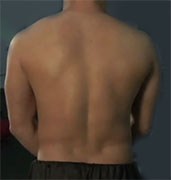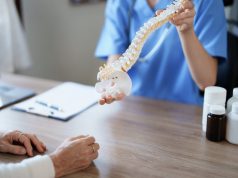Greater reduction in disability and pain versus mechanical-assisted manipulation, usual care
WEDNESDAY, Feb. 18, 2015 (HealthDay News) — For patients with low back pain (LBP), manual-thrust manipulation (MTM) is associated with greater short-term reductions in disability and pain than mechanical-assisted manipulation (MAM) or usual medical care (UMC), according to a study published in the Feb. 15 issue of Spine.
Michael Schneider, D.C., Ph.D., from the University of Pittsburgh, and colleagues conducted a comparative effectiveness trial of MTM versus MAM and UMC among 107 adults with onset of LBP within the past 12 weeks. Participants were randomized to MTM, MAM, or UMC; those in the manipulation groups were treated twice weekly during four weeks, while subjects in the UMC group were seen for three visits during the same period.
The researchers found that for disability and pain there was a statistically significant advantage for MTM at four weeks versus MAM and UMC. A significantly greater proportion of responders was seen at four weeks in MTM (76 and 50 percent with 30 and 50 percent reductions in Oswestry LBP Disability Index Scores, respectively) compared with MAM (50 and 16 percent, respectively) and UMC (48 and 39 percent, respectively). The between-group results for pain were similar: MTM (94 and 76 percent), MAM (69 and 47 percent), and UMC (56 and 41 percent). There were no significant between-group differences for MAM and UMC.
“MTM provides greater short-term reductions in self-reported disability and pain scores compared with UMC or MAM,” the authors write.
Relevant financial activities outside the submitted work were disclosed: consultancy, expert testimony, grants, payment for lectures, royalties.
Full Text (subscription or payment may be required)
Copyright © 2015 HealthDay. All rights reserved.








